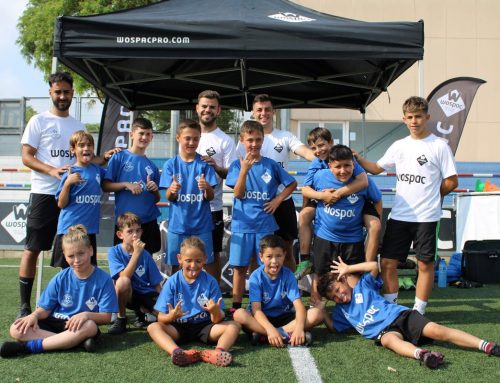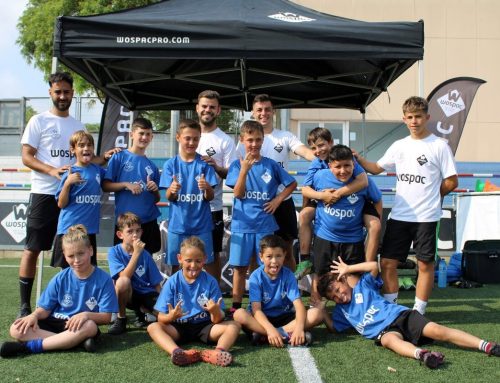For aspiring footballers, professional preparation requires more than weekend training or occasional camps. It calls for total immersion, expert guidance, and international exposure. This is where football residency programs in Europe come into play. These intensive development environments offer players the training, education, and life experiences needed to succeed professionally. With structured routines and global opportunities, European football academies continue to set the standard. Below is a comprehensive look at how these programs prepare athletes for the global football stage.
Professional-Level Coaching and Technical Excellence
At the heart of every European football residency program is a commitment to elite coaching. Players are trained by UEFA-licensed coaches with extensive professional backgrounds. These experts bring a blend of tactical insight and personal mentorship to each session.
Rather than relying on generic drills, training is personalized. Individual strengths and weaknesses are constantly assessed and improved. Sessions are focused on ball control, match awareness, and positional discipline. Over time, players internalize techniques used by professionals in top leagues.
This coaching standard prepares athletes to perform consistently at an international level. Because lessons are drawn from real match situations, players learn what is required to compete globally.
Daily Routines That Build Discipline and Resilience
A football residency program in Europe doesn’t just build athletes—it builds disciplined individuals. The daily routine typically includes physical training, technical drills, team meetings, and academic study. Each part of the day is structured for maximum growth.
Through repetition and structure, players develop habits that support long-term performance. Waking early, training intensively, and managing study sessions require commitment. As a result, mental strength is naturally developed over time.
Even when fatigue sets in, players are expected to push forward. This resilience mirrors the demands of global competition. Consequently, students leave with both football fitness and professional discipline.
Academic Support and Language Learning Opportunities
Although football remains central, European residency programs emphasize education. Players must complete their studies while training. This academic focus ensures that their futures remain open beyond the pitch.
Most academies offer flexible international curriculums tailored for student-athletes. These allow players to balance physical development with academic achievement. Football residency programs teachers provide guidance and monitor performance closely.
In addition, language learning is strongly encouraged. Since many programs are multilingual, students often learn English, Spanish, French, or German. These language skills are essential for global movement in football and beyond.
Match Play and Exposure to Global Scouting Networks
Another key reason athletes choose football residency programs in Europe is the match experience. Players compete in league matches, tournaments, and friendly games throughout the season. These matches provide valuable real-time learning and public exposure.
Most programs have connections with clubs across Europe and beyond. Scouts, agents, and recruiters regularly attend matches or view player highlight reels. Talented individuals may be invited to trials or receive scholarship offers abroad.
In this way, exposure becomes more than a buzzword. It’s a regular part of life in these academies. The possibility of being noticed by international clubs is a constant motivator for students.
Cultural Immersion and Global Perspective Development
Living in Europe provides more than football training—it’s an opportunity to experience different cultures. International players often live together, interact daily, and build friendships across borders. These relationships foster cultural understanding and teamwork.
Exploring local communities, festivals, and traditions also enriches life at the academy. Athletes gain real-world knowledge and develop personal adaptability. These experiences prepare them for the challenges of global travel and diverse teams.
Being part of a multicultural environment shapes players emotionally. They become more open, aware, and respectful. These traits are essential when representing clubs on international tours or joining teams abroad.
Long-Term Career Planning and Personal Mentorship
European football residency programs offer more than skills—they offer direction. Mentors and career advisors work with players to plan their professional futures. Whether aiming for club trials or scholarships, a clear roadmap is provided.
Students are taught to build athletic resumes, prepare match footage, and communicate with recruiters. Guidance is offered on topics such as agent selection, contract reviews, and trial etiquette.
Crucially, each player’s personal goals are considered. This individualized attention sets these programs apart. By focusing on long-term success, academies ensure players leave with purpose, confidence, and direction.
Conclusion
Football residency programs in Europe prepare athletes for global success through elite training, academic support, and professional mentorship. By combining football development with cultural exposure and career planning, these programs create world-ready players. Whether aiming for professional leagues or international scholarships, students leave equipped with the skills, mindset, and experience to succeed. For any aspiring athlete looking to reach the global stage, a European football residency is a powerful step forward.




